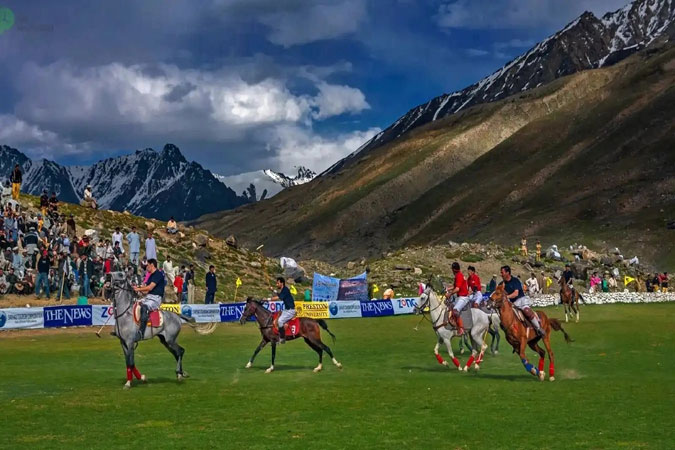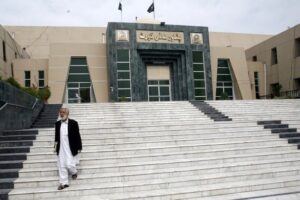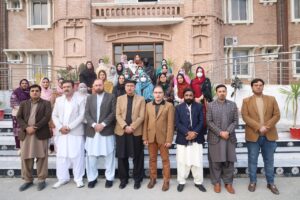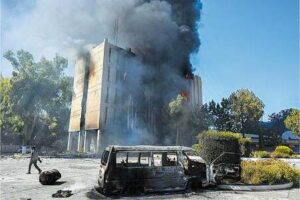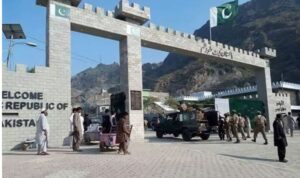PESHAWAR – Shandur Polo Festival did not begin with the whistle. It began in the slow waking of the wind, the whistle of altitude brushing past prayer flags, the silence of snow-covered ridges that watched like old kings. Then came the thud of hooves. And when the horses charged, it was as if the earth had shaken itself awake — not in rebellion, but in ritual.
At 12,000 feet, breath is a prayer. Here, polo is not just a game — it is inheritance, conflict, mythology. It is played without rules because it has its own language. On Sunday, Chitral and Gilgit-Baltistan met once again at the roof of the world. And once again, it ended the way mountain legends often do: with heartbreak, blood, and a last-minute miracle.
Also Read: Chilam Joshi Festival: A Vibrant Celebration of Kalash Culture
Shandur Polo Festival 2025 Upper Chitral #chitral #shandur#shandurpolofestival #chitralvsgilgit pic.twitter.com/AhfLwRTyS6
— Shah Zaib (@Shahzai02077617) June 23, 2025
It was Arbab Quli who first pierced the silence — not with a war cry but a gallop and a goal. Chitral’s flag-bearer delivered the opening strike, awakening the crowd. Then Nasrullah galloped in, scoring with the certainty of a man who knew he was not just playing for his team, but for memory. Izhar Ali Khan followed, hammering in another. In the space of moments, Chitral had scored three, and the plateau echoed with drumbeats, horse shouts, and the mountains’ approving nod.
Gilgit-Baltistan did not fold. They pressed back, goal for goal, clawing their way into the game. By the end of the first half, the scoreboard stood at 6–5 — a one-goal whisper between two regions that do not forget easily.
In the second half, Gilgit-Baltistan scored two more. Chitral answered with one. And just like that, the game locked at 7–7. Time dissolved into anticipation. The crowd leaned forward. Horses frothed and eyes narrowed. Seven minutes of extra time were declared, and in that narrow space between myth and exhaustion, Izhar Ali Khan galloped again.
Also Read: Hidden in The Hills: The Mystery and Marvel Of Nanawar Cave
Unstoppable Chitral! 🔥
— Chitral (@ChitralPK) June 22, 2025
A fierce final ends with another glorious victory for Chitral at the Shandur Polo Festival! 🏆#ShandurPoloFestival pic.twitter.com/xMzgrRVnMN
One goal. Then another. Neither was clean. Both were earned. The kind of goals that demand bruises and give back nothing but silence before the cheer. It was enough. When the final whistle blew, Chitral had won 9–8. Again. Again.
Izhar, now Man of the Match, finished with four goals. Arbab Quli added three. Nasrullah — steady, precise — had two. Their teammates, Israr Wali (captain), Shehzad Ahmad Shaji, and Amir Hamza, completed a lineup that had not just played, but endured. Gilgit-Baltistan’s warriors — captain Sher Azam, Sardar, Zulfiqar, Aslam, Nasir, and Saddam Raji — had fought with fire, but the wind had favoured the red.
The final ten minutes brought drama of another kind. Two of Gilgit-Baltistan’s horses were injured. Both teams cut down to three players. Chitral sacrificed Arbab Quli and Amir Hamza. The ground shrank. The pressure expanded. Every pass became a wager. Every gallop a gamble. This was no longer sport. This was survival in slow motion.
Also Read: Kandar Badadi excavation: Tracing 2,000 Years of Civilization in Hazara
Some glimpses from this year's Shandur Polo Festival.#shandurpolofestival#PakistanArmy #Pakistan #PakistanZindabad pic.twitter.com/FCBuAjwg8P
— INFO TRACKS (@Info_Tracks) June 23, 2025
Lieutenant General Umar Ahmed Bukhari, Corps Commander 11 Corps Peshawar, handed over the trophy — a small object for a large truth. The Shandur Polo Festival, for all its flags and festivities, is no celebration of victory. It is the theatre of resilience. Since 2011, Chitral has won every final here. But no one ever really loses at Shandur — not when history rides with every rider.
The festival was organised by the Khyber Pakhtunkhwa Culture and Tourism Authority, in partnership with the district administrations of Upper and Lower Chitral and local security forces. But it belonged to the crowd. It belonged to those who brought their children wrapped in shawls, who cheered for old rivalries and sang mountain songs that don’t translate.
In his address, General Bukhari called Shandur “a mirror of love” between two regions bound by topography and torn by politics. He called polo here “a feeling,” not just a sport. “It is played without rules,” he said, “and yet binds people in ways constitutions cannot.” He applauded the spirit of both local and foreign visitors and promised better facilities. He pledged to press for the Chitral–Booni–Shandur road’s early completion and to pursue the establishment of a cadet college in Chitral.
The Shandur Polo Festival is often described as the world’s highest polo match. But elevation is not its only distinction. It is one of the few places left where history is still oral, rivalry still gallops, and memory is measured in goals. Here, in this strange and sacred space above the clouds, two teams come every year to settle a score no trophy can hold.

